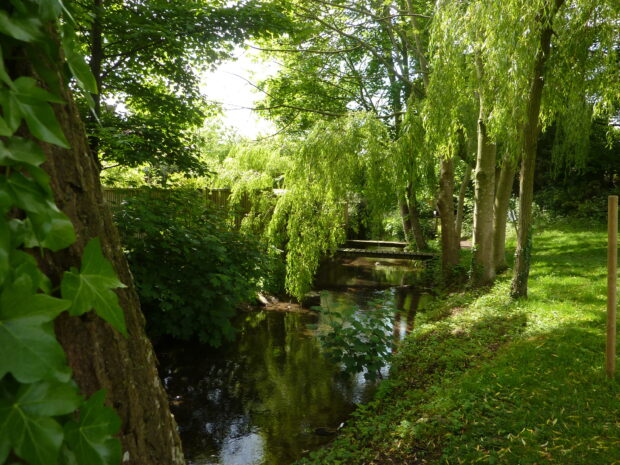
There has been coverage today in the Times – part of its Clean It Up campaign - regarding guidance for farmers to reduce and prevent agricultural pollution into waterways.
The piece states that ministers have been accused of giving farmers permission to pollute waterways by loosening rules on how manure can be spread on the land. This is not the case, the regulations – known as the Farming Rules for Water – have not been changed.
Farming activities are a main source of water pollution in the UK, which is why we are working with farmers to reduce nutrient pollution and incentivise better practices through our farming reforms.
Our Sustainable Farming Incentive (SFI), Countryside Stewardship (CS) and Landscape Recovery schemes will provide farmers with funding support for regenerative measures that reduce water pollution and improve biodiversity. We have also made grants of up to £250,000 available to improve slurry storage, helping farmers to prevent water and air pollution.
We have also funded 50 extra Environment Agency inspectors to be recruited and aim to conduct 4,000 farm inspections this year. This has significantly increased the EA’s capacity to work with farmers to meet their obligations, including around catchments such as the River Wye.
A Defra spokesperson said:
Agricultural practices are one of the main contributors of diffuse water pollution in the UK, which is why we have made extra budget available this year to the Environment Agency to conduct 4,000 farm inspections a year, and doubled the funding available for the Catchment Sensitive Farming programme over the next three years.
Through programmes like Countryside Stewardship and the Sustainable Farming Incentive, we are also paying farmers to take actions that protect watercourses and reduce run-off. This sits alongside a new, multi-year grant scheme for farmers to help them improve slurry storage and existing water management grants.
An Environment Agency spokesperson said:
We work constructively with farmers to reduce water pollution from agriculture. Last year we received extra funding from government and since then nationally we have undertaken 3,785 inspections, and required 6,169 improvement actions on farm – with a focus on improvements around protected sites”
If we find pollution or significant risk of pollution occurring we will not hesitate to take further action and have also begun enforcement action against 140 farms.
1 comment
Comment by John W. Baxter posted on
It is such a pity that 140 actions have been taken against farms at a time when they are under financial stress, by the EA, and yet profit making water companies who pollute water courses as their lowest cost option do not find themselves under financial stress as they are still being paid to treat the waste water…….they have nothing to lose under the current ‘system’.
If local authorities , in consultation with EA continue to permit more intense phosphate production in places like the Wye valley, in which farming units are obliged to comply with Defra regulations, the conclusion must be that it is head banging time when the person from EA finds the number for the person from Defra and calls them and they then call the person from local authorities and between them demonstrate to the paying public that they are worthy of supporting financially.
I am not convinced that farming is so responsible for the filthy state of our watercourses,…..more likely I suggest it is apathy on the part of our public services for allowing things to get to this point.